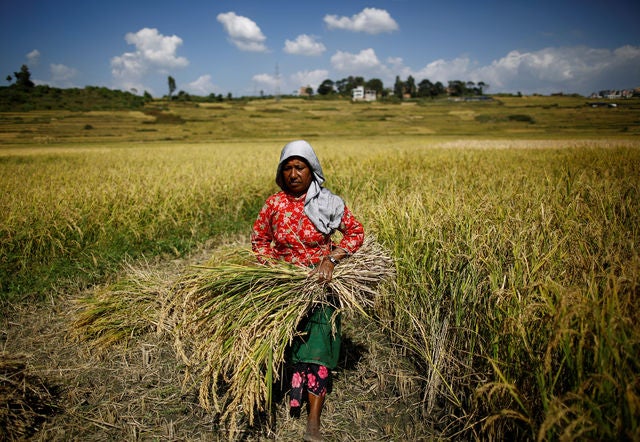Food security alliance issues urgent call for funds to be mobilized to address food crisis
The Global Network Against Food Crises has issued recommendations to address the skyrocketing number of people vulnerable to hunger due to conflict, climate shocks, and the COVID-19 pandemic

An alliance of food security groups has issued an urgent call for funds to be mobilized by the international community to address the escalating global food crisis.
Their recommendations were published in the Global Network Against Food Crises 2022 Report, which showed that the number of people vulnerable to hunger due to conflict, climate shocks, and the COVID-19 pandemic is skyrocketing. The report was published by the Global Network Against Food Crises, an international alliance of U.N., governmental, and nongovernmental agencies working to address the root causes of extreme hunger, and was facilitated by the Food Security Information Network.
The alliance also called on the international community to support local initiatives, such as helping farmers raise their productivity and improve their access to markets, which would help mitigate a reliance on imported food stocks. It is also pushing for improvements in data collection and analysis regarding food security to inform the development of better solutions.
The report’s findings reveal that 193 million people in 53 countries were facing acute food shortages as of 2021 – an increase of 40 million compared to the year before. The worst-hit regions were those experiencing ongoing conflict, including Afghanistan, the Democratic Republic of the Congo, Ethiopia, Nigeria, South Sudan, and Syria.
A major contributing factor was the unprecedented rise in the price of wheat from Ukraine. Wheat prices reached an all-time high after Russia's invasion, sparking severe food insecurity. During a virtual U.N. briefing, Rein Paulsen, director of the Food and Agriculture Organization’s Office of Emergencies and Resilience, noted that “there is real cause for concern of how this will amplify the acute food needs that exist in these food crisis countries.”
COVID-19 and its economic impacts, added the report, have resulted in 30.2 million people in 21 countries being exposed to severe food shortages, while extreme weather events were cited as the cause of acute hunger for 23.5 million people across Africa. One example is southern Madagascar, where food sources for nearly 14,000 people were depleted because of drought.
While global hunger is fueled by multiple factors, conflict and war are the main causes. Close to 139 million people across 24 countries and territories that are facing hostilities are at risk of starvation. Out of 51 million people who were displaced by war, 45 million reside in regions where food shortages are highest.
The report indicates that malnutrition continues to be a challenge for millions – low-quality food, lack of sanitation, and childhood illness are contributing to overall malnutrition rates. Wasting among children is rising as well – data reveal that 26 million children under the age of five are in need of urgent treatment, with over five million at risk of dying.
The percentage of the population facing acute food insecurity rose from just over 11 percent in 2016 to over 22 percent in 2021, Paulsen said during the U.N. briefing, while funding has dropped dramatically. As of 2021, US$8.1 billion was allocated for food emergencies – a drop of 25 percent over 2017 funding levels.
“While the international community has stepped up to calls for urgent famine mitigation action, global humanitarian and development funding for food crises is failing to match growing needs,” the Alliance stated.
According to CARE International, women are particularly vulnerable to food insecurity. It reported that 59 percent of the roughly 828 million people worldwide who were affected by hunger in 2021 were women. This translates to 150 million more women than men who are at severe risk. In an interview with CNBC, Emily Janoch, CARE’s senior director of thought leadership, said, “Not only is that a stark gap, it is a gap compared to 2018 that is growing rapidly… everything that we’re seeing is telling us that it’s going to get worse.”
How can we help you?
believes that the quickest path to improving health outcomes to identify positive outliers in health and help leaders implement lessons in their own countries.
With our network of in-country and cross-country partners, we research countries that have made extraordinary progress in important health outcomes and share actionable lessons with public health decisionmakers.
Our research can support you to learn about a new issue, design a new policy, or implement a new program by providing context-specific recommendations rooted in Exemplar findings. Our decision-support offerings include courses, workshops, peer-to-peer collaboration support, tailored analyses, and sub-national research.
If you'd like to find out more about how we could help you, please click . Please consider so you never miss new insights from Exemplar countries. You can also follow us on Twitter and LinkedIn.
